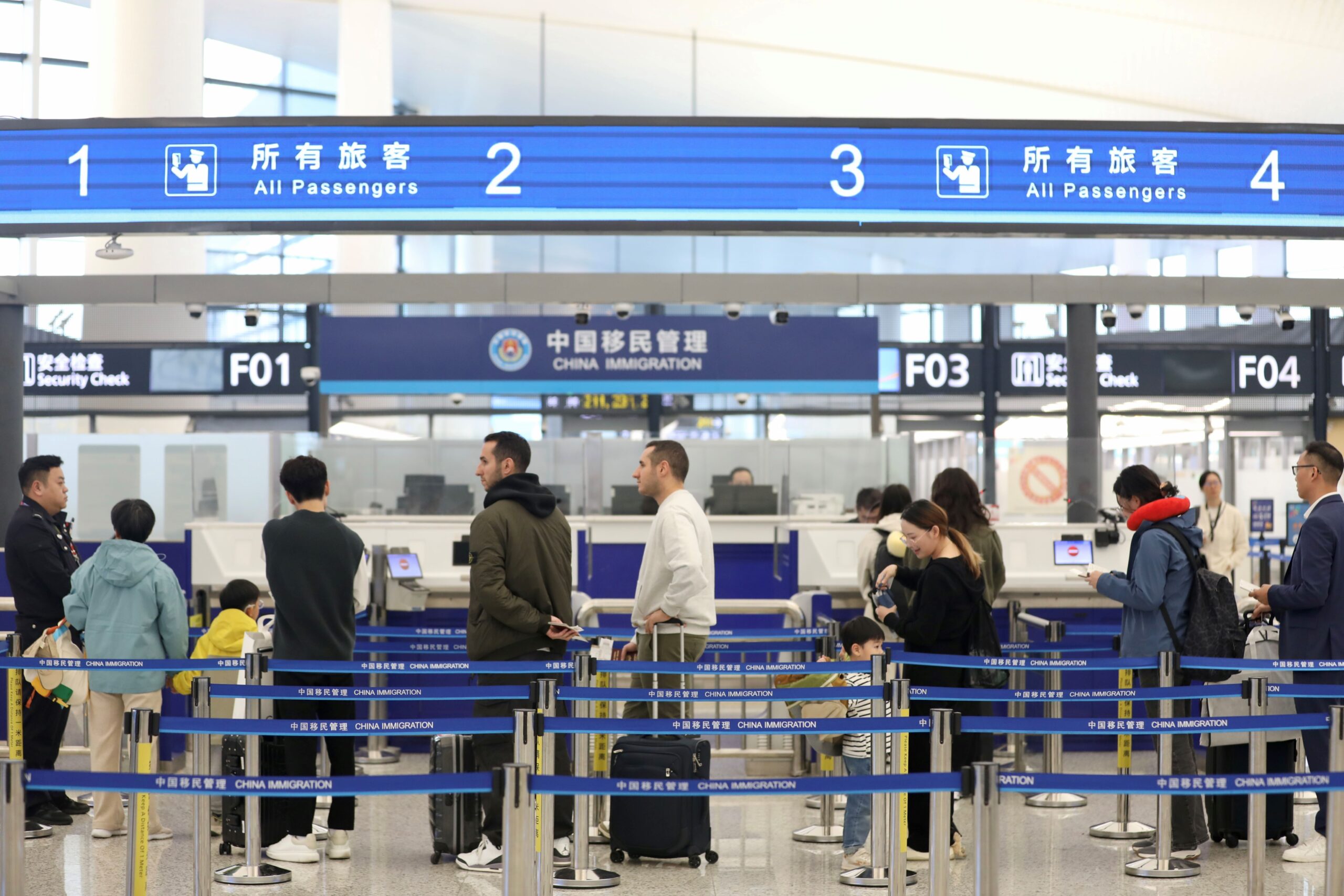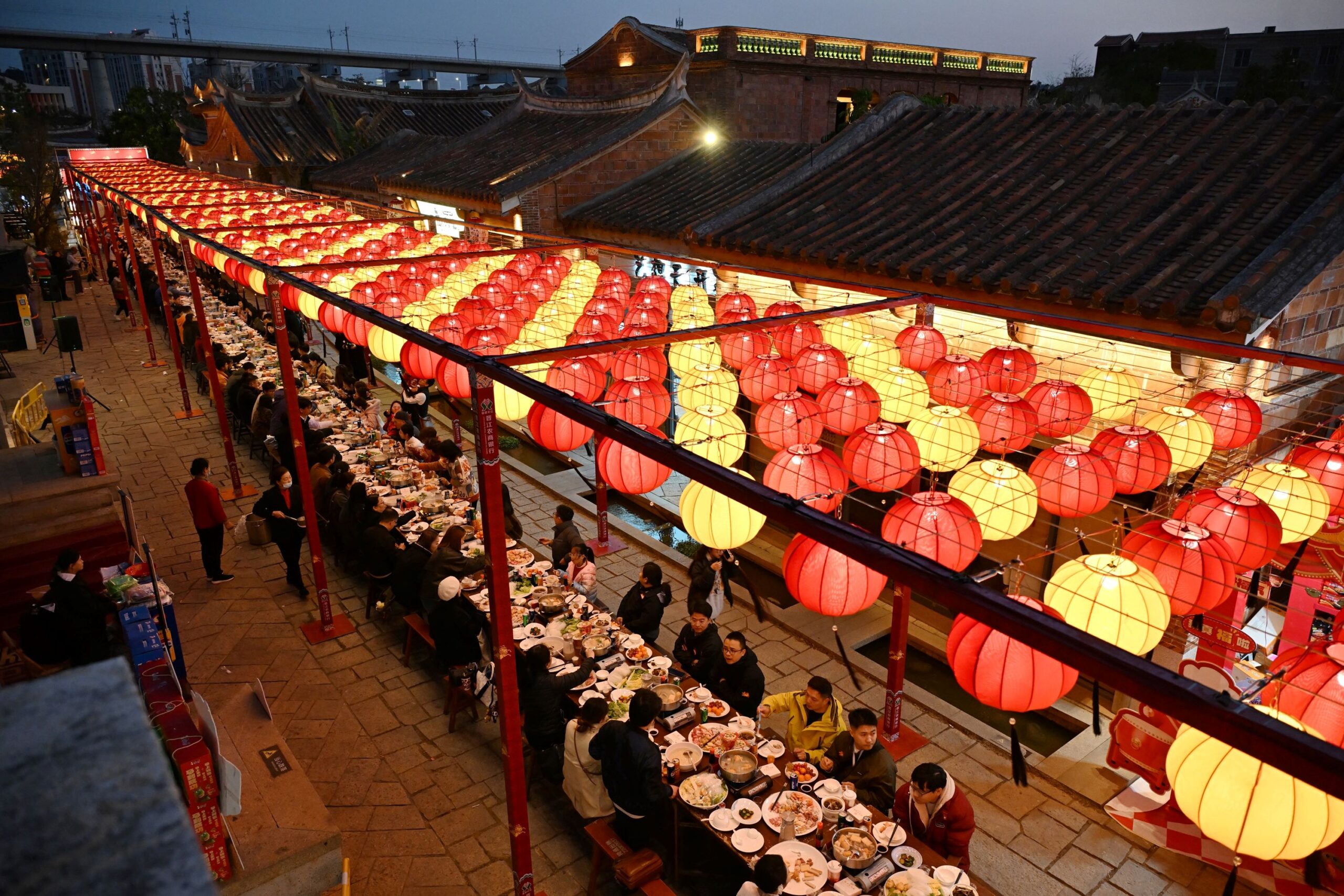Discover Beijing’s Robot Restaurant, where humanoid robots serve food, perform live, and turn dining into a futuristic sci-fi experience.
Stepping into Robot Restaurant in Beijing’s Yizhuang, you are greeted not by human waiters, but by humanoid robots—Xier (希尔) and Xiao Qi (小柒). Their metallic arms move with precision as they welcome guests, setting the tone for a dining experience straight out of science fiction.
Opened during the 2025 World Robot Conference, Robot Restaurant has quickly become a hotspot for locals, tourists, and tech enthusiasts alike. Families, young adults, and even grandparents flock to experience a restaurant where cuisine, culture, and robotics converge.
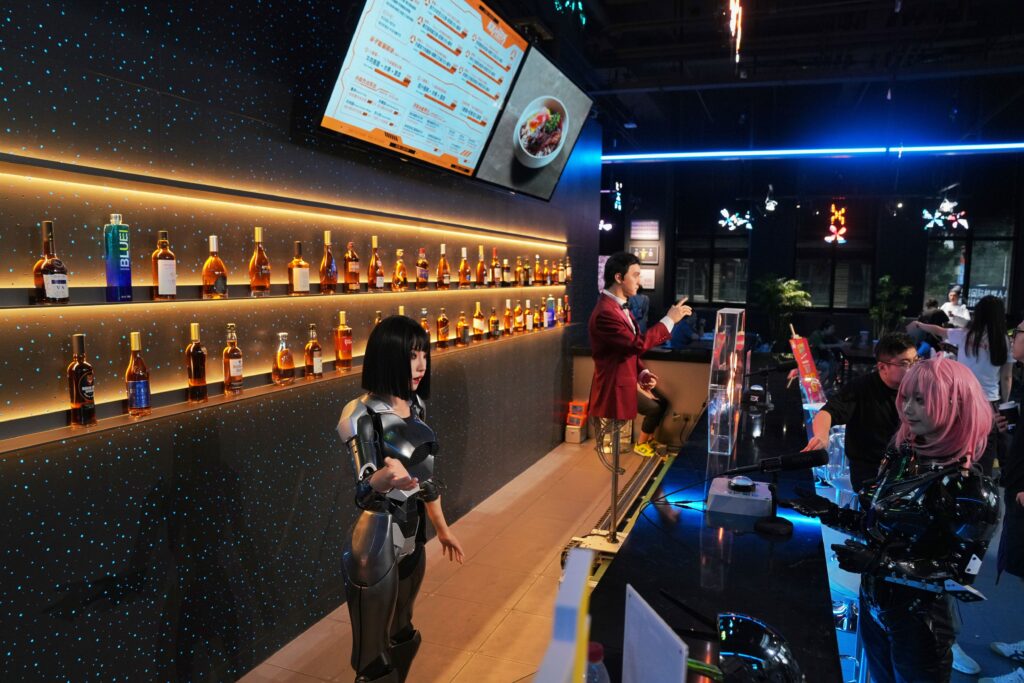
Dining with Robots
Inside, the scene is buzzing with robotic activity. Chefs prepare crepes, coffee, milk tea, and skewers, while delivery robots glide between tables, and smart trash bins quietly follow diners. A robot band—keyboard, guitar, drums, and bass—performs live music, adding a futuristic soundtrack to the dining experience.
The menu emphasises both novelty and familiarity, offering three signature combos: Combo 1 (Alpha Core Module): Beef fillet cheeseburger + Caesar salad + French fries; Combo 2 (Beta Dual-Core Module): Portuguese chicken burger + Caesar salad + French fries; Combo 3 (Gamma Liquid Metal): Grandma’s bolognese + Smoked salmon salad + French fries.
Each Combo costs around 168 yuan (approximately £16.6). While main dishes are prepared by human chefs, robots handle drinks, desserts, and other aspects of table service. Consumers are often surprised by how smoothly the machines operate—and by the taste of robot-prepared beverages, which rivals high-end brands.
“Many visitors are curious about how the robots actually make drinks,” explains Wang Guodong, CEO of Aarobot, which developed the milk tea robot. “We created demonstration videos so people can see every step. And the feedback is often surprising—the taste is as good as, or even better than, premium brands.”
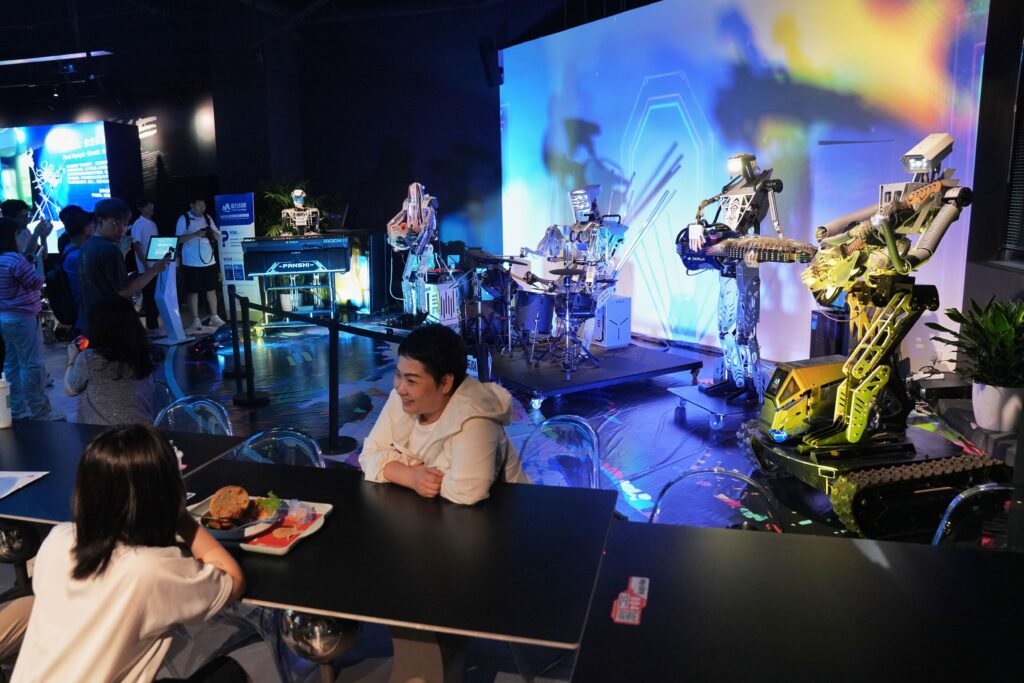
Entertainment Beyond the Food
The Robot Restaurant’s appeal extends far beyond its menu. Children love interacting with robotic dogs and small dinosaur bots, while adults take photos of the futuristic décor. Humanoid robots representing Chinese poets Li Bai and Su Shi entertain guests with brief comedy sketches and poetry readings, allowing visitors to engage in direct conversation with them.
The live robot band is another highlight. “I loved listening to the robot musicians,” said visitor Gao Yu. “And interacting with the Li Bai and Su Shi robots made it feel like history and technology meeting at the dinner table.”
While some visitors note that reservations can be difficult to secure and that food prices are slightly above average, most agree that the experience is worth it. “It’s more than dinner—it’s an adventure,” said one parent, watching their child chase a robot dog around the tables.

Beijing’s Robotics Scene
Robot Restaurant is part of a broader robotics ecosystem in Beijing, a hub for innovation. The city hosts over 300 robotics companies and has tested more than 200 products across 134 real-world scenarios, from manufacturing and healthcare to commercial and domestic services.
The recently concluded 2025 World Robot Conference showcased these advances. Robots performed tasks from industrial assembly to artistic performances. Officials highlighted ten promising application areas for humanoid robots, including home care, commercial service, and safety assistance.
Robot Restaurant also collaborates with Beijing’s robot 4S store, the world’s first retail and service centre dedicated entirely to robots, allowing visitors to experience cutting-edge robotics technology firsthand.
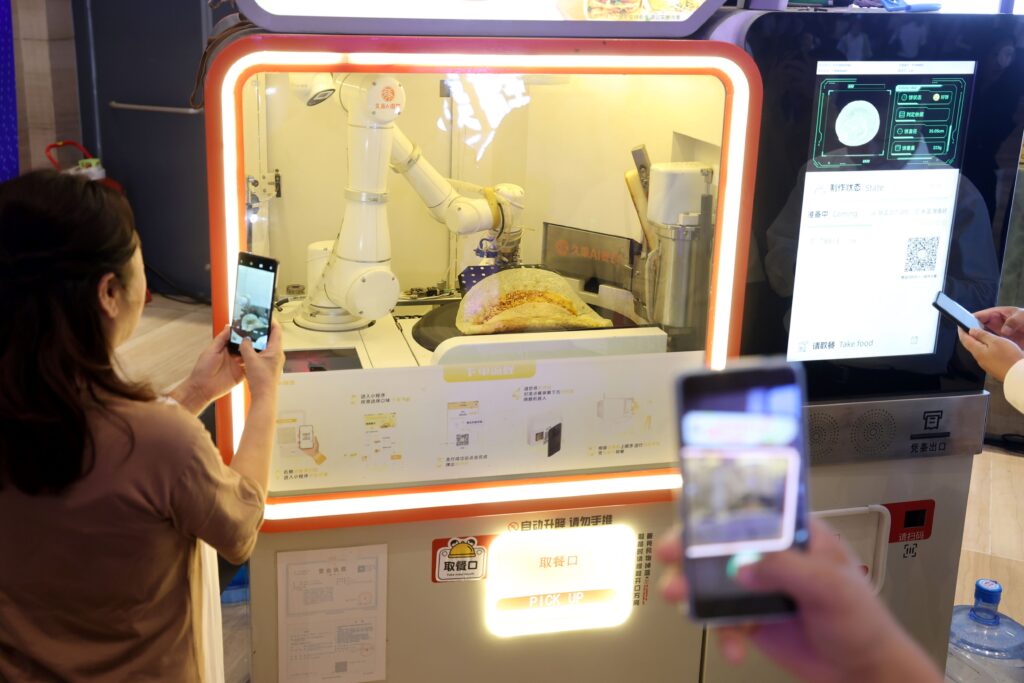
Challenges and Opportunities
Despite its buzz, Robot Restaurant remains experimental. Humans still prepare main courses, costs are high, and full automation is not yet feasible. However, the restaurant serves as a testing ground for human-robot interaction in real-world settings. Feedback from visitors helps the team refine the technology, improve services, and expand the robots’ capabilities.
Experts also note broader challenges in robotics, including ethical concerns, safety issues, and economic costs. “Robots must serve human interests,” said Kim Jae-hwan, Secretary-General of the Korea Robot Industry Association. “Collaboration between governments, industries, and academia is essential to ensure responsible development.”
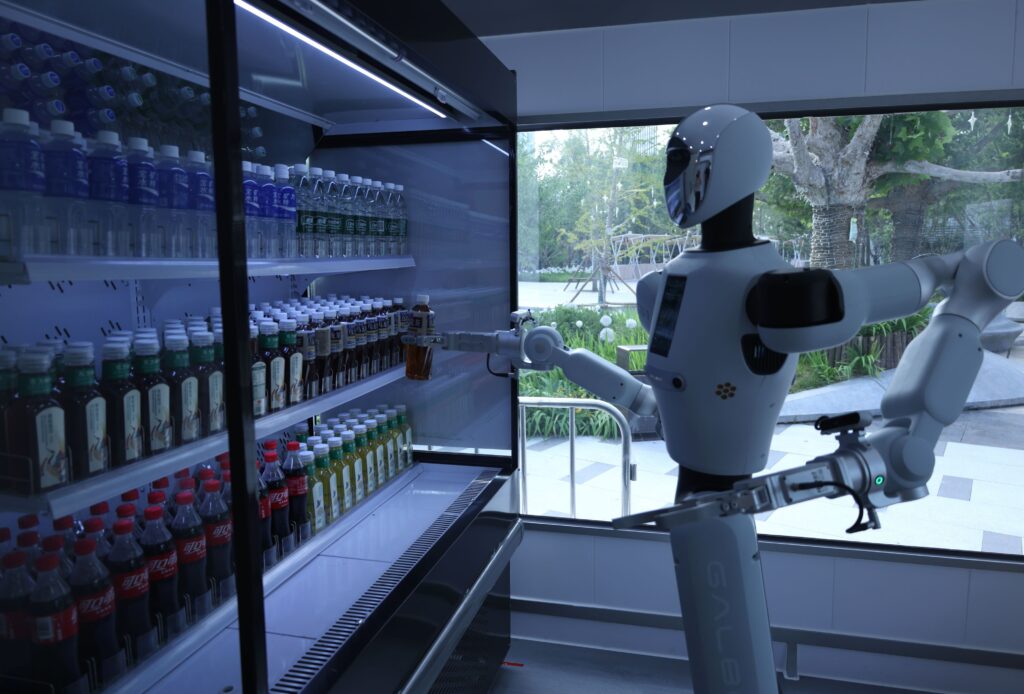
A Glimpse of the Future
Robot Restaurant also offers a vision of life with robots. Children chase robotic pets, adults sip robot-made drinks, and humanoid entertainers share poetry and jokes. The combination of food, culture, and technology creates a unique experience that is both fun and futuristic.
As one guest put it after enjoying the Alpha Core Module burger combo, “It’s like dining in the middle of a science fiction movie—but it’s real, and it’s happening in Beijing today.”
The Robot Restaurant demonstrates how intelligent machines can gradually move from factories and labs into daily life, offering not just convenience but also entertainment, cultural engagement, and immersive experiences.
Additional reporting by HKCNA, CNS.
If you like this article, why not read: World Robot Conference 2025 in Beijing Shows Vision of the Future








